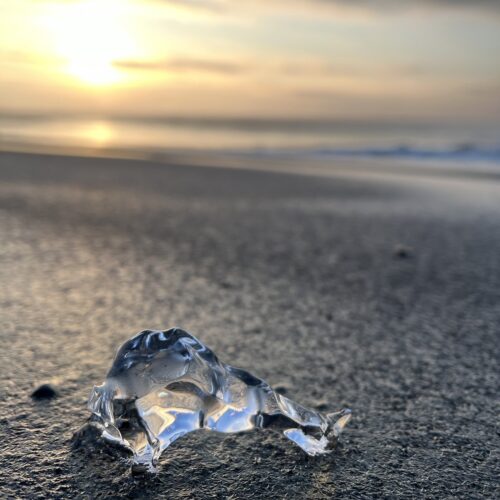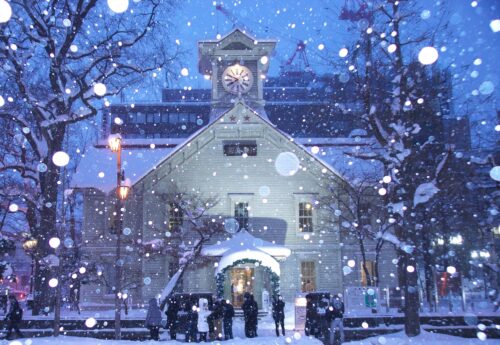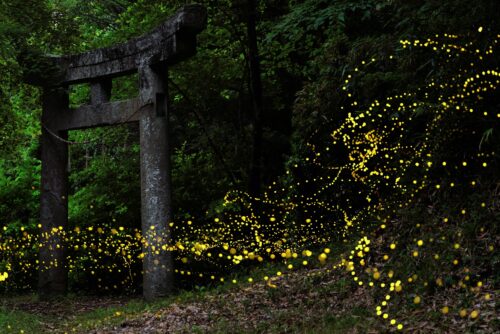Japanese Culture and Traditions– category –
-

The Power of a Name: How ‘Jewelry Ice’ Turned a Nobodys’ Coast into a Global Destination
The cult of ice: Over 100 people gathered in punishing cold before dawn to see the Jewelry Ice. We explore the power of a name: worthless river ice was renamed 'Jewelry Ice' and became a global phenomenon. Money is a form of appreciation for perceived value. We must find the 'Jewelry Wood' moment for our furniture. -

The Levitt Principle: How Removing Barriers and Redefining Purpose Creates Billion-Dollar Hits
I analyze the success of the Convenience Gym, which found a million members by removing every possible barrier to exercise. Then, I examine the hit Men's Parasol, which succeeded by simply redefining the item's purpose. Both confirm Theodore Levitt's Principle: "Sell the hole, not the drill." I apply this to our craft by proposing to engrave family names on dining chairs—shifting the purpose from "comfort" to "making the place where family members return to." (The only downside: it risks making parents terribly sad after the kids fly the nest.) -

KFC, Cake, and Loneliness: The Bizarre Ways Japan Celebrates a “Culturally Blank” Christmas
Why do Japanese people eat KFC and cake on Christmas? I analyze this "culturally blank" phenomenon, tracing the origins of the traditions from aggressive commercial marketing to intense social pressure to avoid being a "loser." I conclude by inviting readers to Hokkaido to trade the chaos of collective anxiety for the silence and true, natural beauty of a White Christmas. -

The Handmade Paradox: Why a Handmade Gift is Bliss, But a Handmade Pacemaker is Terror
Why do we pay a premium for "handmade" imperfection? I explore the Handmade Paradox: while a handmade pace maker is terrifying, a handmade Valentine’s chocolate is bliss. I argue that the value lies not in quality or precision, but in the meaningful, human background story. We conclude by discussing how our furniture combines high-tech precision with the essential human touch to create a better narrative. -

The $300 Sock Test: Why Mushroom Hunting in Hokkaido Is for the Brave (and the Bored)
Why does Japan's $300 Matsutake mushroom smell like dirty socks overseas? I explore the cultural acclimatization of fungi, the 4,000-year history of risk, and the scientific mystery of poisonous mushrooms. I then take you to Hokkaido, the last mushroom frontier, where unpicked bounty proves the biodiversity and health of our forests—and the quality of our wooden furniture. -

The Shaved-Head Mystery: Why Japan’s Top Athletes Were Forced to Embrace Non-Sense
Why were stars like Shohei Ohtani forced to shave their heads in high school? I analyze the irrational culture of Guts (Konnjō) versus the practical logic of the pros. Framed from my rational Hokkaido perspective, I argue that forced unity is a relic of non-sense discipline. The conclusion? A surprising logical leap from the rigid fields of Japan to selling furniture in the vibrant baseball capital of Monterrey, Mexico. -

The Double Life of “Fireflies”: From Closing Time Signal to Magical Night in Hokkaido
Why does the Scottish folk song "Auld Lang Syne" make Japanese people instantly flee? I explore the Pavlovian closing signal ("Hotaru no Hikari"), only to pivot to the actual fireflies in Hokkaido. From a surreal night in the JSDF to Asahikawa’s successful community effort to reclaim natural beauty, I argue that the magic of a cool summer night is the best reason to avoid the heat of mainland Japan. -

The Logic of Lunch: What India’s Dabba and Japan’s Bento Say About Culture
What do India’s Dabba delivery system and Japan’s Bento art tell us about culture? I explore the unseen human greatness of Mumbai’s analog logistics and the miniature artistry of the Japanese lunchbox. This leads to the structural difference of Tiffin tins vs. magewappa (bent wood boxes)—and the surprising fact that the technology that perfected your traditional Bento now perfects our Hokkaido wooden chairs. -

The Kaizen Noodle: What 81 Meals a Year Taught the World About Instant Ramen
How did a post-war necessity become a global staple eaten 81 times a year in Korea? I explore the Japanese invention of instant noodles, tracing Momofuku Ando's five-point philosophy and the continuous innovation (Kaizen) that produced non-fried and raw-type noodles. The article concludes with the utterly anticlimactic truth: I cannot bring specialty instant noodles as a souvenir to our Bangkok staff because global logistics always loses to carry-on baggage limits. -

The $2 Billion Pocket Problem: How Design Thinking Turned Leftover Coins into an Experience
I trace the origin of Japan's Galápagos Syndrome to a chocolate snack craze from my childhood, fueled by the hit-or-miss system for rare hologram stickers. This mentality evolved into Gacha (capsule toys). I analyze the genius marketing move that transformed this local craze into a global success: installing machines at airports to solve the universal problem of leftover JPY coins. This is the power of design—solving a logistics headache with empathy and turning a local habit into a global solution.
